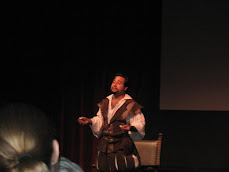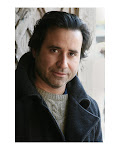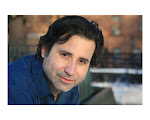O Jerusalem
From: Variety
Date: March 24, 2003
Author: Charles Isherwood
A little irreverence might not be a bad thing when it comes to the endlessly fraught Palestine question. And A.R. Gurney's new play on the subject--yes, I did say A. R. Gurney--starts out in a pleasantly playful manner, promising to bring a light touch to a painfully fraught subject. But the pleasure gradually fades as the play devolves into an odd mixture of soap opera and op-ed column, and by the time it concludes, with the central character, an American diplomat, having become a martyr for the cause of peace, it has all but evaporated.
The play's elaborate conceit presents the text as having been written just after Sept. 11, then lost for some time. We are watching it at some distant time in the future. "Because it is a long, rambling and tormented piece," we are told, the actors narrate and edit as they go along, stepping out of character to explain what's happened in scenes they've decided to skip or shorten.
The story follows the quixotic diplomatic career of Hartwell Clark (Stephen Rowe), an oil man recruited by President Bush, pre-9/11, for a minor post in the ministry of Near Eastern affairs, as it is called. "Why do they say that?" asks his scornful wife, who has no interest in leaving comfy Houston for the scorching deserts. "Maybe it's nearer than we think," comes the answer, suggesting things won't be all fun and games.
Does this slick oil guy, who went to school with W, seem an unlikely figure for such a tense time? "Here's where we've cut some clunky lines which remind us that at this time the Bush administration had turned its back on the Middle East," comes the plausible explanation. "Which makes Hartwell's appointment possible, if not probable."
Such frank interjections continue intermittently as Hartwell dives into his job, although plausibility becomes a problem that can't really be brushed aside by a shrug of the shoulders in the text. Hartwell quickly becomes a figure of controversy when an old flame, a Palestinian intellectual with whom he had an affair at school, Amira (a sharp Rita Wolf), accosts him at a meet-and-greet cocktail party in Jordan and insists on a secret meeting. The womanizing Hartwell thinks romance is in the air, and risks official disapproval by pursuing the relationship.
But Amira has more urgent business. She warns Hartwell of an imminent terrorist attack on the U.S., the info coming from her son, a member of Hamas. More details will follow if Hartwell will take her son's peace plan for the holy land to his bosses. Eventually he does so (both warnings and plan are ignored, obviously), and becomes a crusader intent on finding a solution to the Palestinian problem that puts him at odds with his government's official, staunchly pro-Israel position: "When in God's name are they' going to realize that we are all in this together?" he asks, exasperated at gossip that labels him anti-Semitic for his position.
Unfortunately, Gurney's analysis of this complex territory doesn't get much more sophisticated than that query, which recurs more than once and is ultimately proffered as the play's unifying idea. The implicit suggestion, that the events of 9/11 might have been prevented if the U.S. had taken a more open-minded, and forthright, interest in the Palestinian question, is provocative, but it's also simplistic. And the points that Gurney makes throughout the play--on the hypocrisies and cruelties of U.S. policies, the peculiar attitudes of fundamentalist-Christians toward the question of the holy land, etc.--often reduce his characters to mere TV pundits in street clothes.
The interrelationships among the characters aren't explored with much more nuance. The dialogue tilts toward the soapy. ("We had a good thing going, didn't we, Amira?") And what are we to make of Hartwell's womanizing, anyway? When the fling with Amira doesn't pan out, he hits on another old friend, Sally, a U.S. Information Office exec who is somewhat tangential to the proceedings. If it's an attempt to give him some humanity, it backfires, since he comes off as a bit sleazy and desperate. Or are we to take Hartwell as a stand-in for the U.S.' love-'em-and-leave-'em politics? That's even more iffy.
The play is performed with chipper, informal professionalism by its cast of five, under the brisk direction of Flea a.d. Jim Simpson. But the characters remain two-dimensional, and Gurney's plotting only gets more ham-fisted as the play moves toward its tragic conclusion.
Presenting the text with a self-conscious wink--as if to excuse its implausibility by emphasizing its status as a fablelike commentary on events, not a depiction of them--doesn't really excuse the playwright's simplifications and sentimental contrivances. And the self-editing conceit eventually begins to beckon us: When the actors cheerily make reference to scenes they've edited out, it's hard not to wish the audience, too, could be let in on the process.





















No comments:
Post a Comment